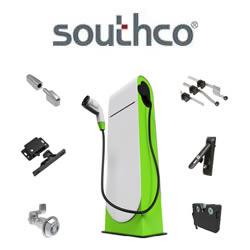Choosing the right hardware is among the most important decisions that you will make when beginning an energy audit / inspection application.
PDA Energy Auditing Choices
Bill Shadish | Fundamental Objects

by Bill Shadish, Fundamental
Objects
Hardware choices
Your field staff no longer needs to schlep (or to lose, or to have stolen) laptops into the field to take energy audits or inspections. Or worse, to have your staff write audit notes on paper forms to be (shudder) keyed-in back at the office.
The explosive growth in Personal Digital Assistants (PDAs) has dramatically lowered the cost of running audits, inspections or workorders from a handheld device.
And, these PDAs actually work today. There are literally thousands of applications available for them, many of them free. These PDAs can even run copies of Word, Excel and PowerPoint, so that you can do much of what you used to do on a laptop.
But part of this growth brings on new concerns, primarily over what the heck one to buy. This article points out some of the key good (and key bad) points of the main handheld platforms that are currently on the market to help you in your decision process.
Benefits/Drawbacks
This table helps to point out the pluses and minuses of each platform.
| Tool | Pluses | Minuses |
| Pocket PC (PPC) |
|
|
| PalmOS |
|
|
| Phones (browser-enabled) |
|
|
| Tablet PC |
|
|
But...
| The lines above are blurring quickly, with devices like
the Treo 600 (see right). This PalmOS device is also a fully featured
GSM/GPRS or CDMA (click for descriptions)
mobile phone. The phone features are tightly integrated with the PDA
software, so that you can look up a person's name in the list and dial
the phone directly from the list entry that you just found. Since you
can run standard Palm applications on the Treo 600, this becomes an
effective all-in-one tool. Also, connectivity between devices has become much tighter, with the rollout of Bluetooth and Wi-Fi connections. These standards allow you to use, for example, a Bluetooth-enabled PDA with a Bluetooth-enabled mobile phone to access the web. Or you can even add a small Bluetooth-enabled printer to print invoices, receipts or work orders in the field.You can pick the best of both phone and PDA breeds and use them together to accomplish joint tasks as well. |
|
Things to Look for
Some things that should influence your hardware decision are:
- To go wireless or not?
Are your users within range of wireless stations and are you willing to pay for the wireless access plans to go wireless? Doing so allows you to store more data on the internet, so that changes can occur in one (and only one) place. But it does cost more for connectivity.
- Standardization with PC software.
Do you want to edit Word or Excel applications on both the PDA and the PC? If so, standard phones are eliminated from contention.
- Keyboards, Printers and other add-on devices.
Will your application require these add-ons? If so, you will want to choose devices that offer connectivity to them.
- Existing base.
Do your users already have a significant number of one hardware type or the other already in place?
- Number of Fields
The amount of data to capture in your PDA application can dictate hardware as well. The tiny screen of a phone precludes a lot of fields, while a Tablet PC can handle a ton of them.
- Cost.
Tablet PCs can cost 10x as much as Palm or even PPC handhelds. Even a $50 difference between different PDA types or versions can run into a very large number, if you have thousands of users.
Consider Your Data
 |
The data that you will want to capture can also dictate
the hardware to use. In this foAudits
example (see left), the inspector is capturing information in
several different ways.
The dates and times are from pop-up calendars, the number of rooms comes from a pick-list (a drop down-list). There are places to key-in comments and an area to have the customer sign-off on any suggested work. Capturing all of this on a phone-based interface would be very difficult. However, if you do not need sign-offs or a lot of keyed comments, then the phone interface is fine for pick lists and Yes/No responses. |
For More Information
The following links provide more detail for you to drill into this and related topics.
Handheld Energy Audits
http://www.foaudits.com
Choosing PDA hardware
http://www.k2channel.com/download/hardware/choosingyourhandheld.pdf
Handheld User Interface Ten Commandments
http://www.fundamentalobjects.com/articles/mc-01.htm
Lawrence Berkeley Labs: Energy Analysis and calculators
http://eetd.lbl.gov/EA/EA_Buildings.html
 Fundamental
Objects, Inc. (FO) is a software development consulting firm. Founded in 1995,
FO provides custom software development and project management on specialized
corporate and government projects. FO also markets pre-packaged software
development tools (http://www.foAudits.com/) as
well as providing teaching and mentoring services. What we enjoy most is truly
partnering with companies -- which provides for far "stronger"
solutions than is normally possible.
Fundamental
Objects, Inc. (FO) is a software development consulting firm. Founded in 1995,
FO provides custom software development and project management on specialized
corporate and government projects. FO also markets pre-packaged software
development tools (http://www.foAudits.com/) as
well as providing teaching and mentoring services. What we enjoy most is truly
partnering with companies -- which provides for far "stronger"
solutions than is normally possible.
The content & opinions in this article are the author’s and do not necessarily represent the views of AltEnergyMag
Comments (0)
This post does not have any comments. Be the first to leave a comment below.
Featured Product


